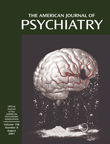Zolpidem Abuse
Ms. A was a 67-year-old Causasian woman who came to a detoxification unit for zolpidem abuse/dependence. She was previously treated for depression, anxiety, and insomnia, as well as alcohol, barbiturate, and benzodiazepine dependence. Ms. A had been treated for insomnia with oral zolpidem, 10 mg at bedtime, but she said she had increased her dose without the knowledge of her physicians, using up to 100 mg/day (20 mg five times a day) for the last 1.5 years. She alternated this use with various benzodiazepines obtained from multiple physicians when zolpidem was unobtainable.Ms. A came in for treatment with severe generalized tremor, psychomotor agitation, facial flushing, and anxiety, despite taking 300 mg of chlordiazepoxide in divided doses in the first 24 hours of detoxification. She had persistent symptoms despite treatment with benzodiazepines; a tapering dose of zolpidem was initiated in addition to the tapering dose of chlordiazepoxide. After taking 15 mg of zolpidem, her symptoms completely subsided within 30 minutes. Ms. A took zolpidem, 45 mg over 24 hours in divided doses; it was tapered along with chlordiazepoxide over 5 days.
References
Information & Authors
Information
Published In
History
Authors
Metrics & Citations
Metrics
Citations
Export Citations
If you have the appropriate software installed, you can download article citation data to the citation manager of your choice. Simply select your manager software from the list below and click Download.
For more information or tips please see 'Downloading to a citation manager' in the Help menu.
View Options
View options
PDF/EPUB
View PDF/EPUBGet Access
Login options
Already a subscriber? Access your subscription through your login credentials or your institution for full access to this article.
Personal login Institutional Login Open Athens loginNot a subscriber?
PsychiatryOnline subscription options offer access to the DSM-5-TR® library, books, journals, CME, and patient resources. This all-in-one virtual library provides psychiatrists and mental health professionals with key resources for diagnosis, treatment, research, and professional development.
Need more help? PsychiatryOnline Customer Service may be reached by emailing [email protected] or by calling 800-368-5777 (in the U.S.) or 703-907-7322 (outside the U.S.).

